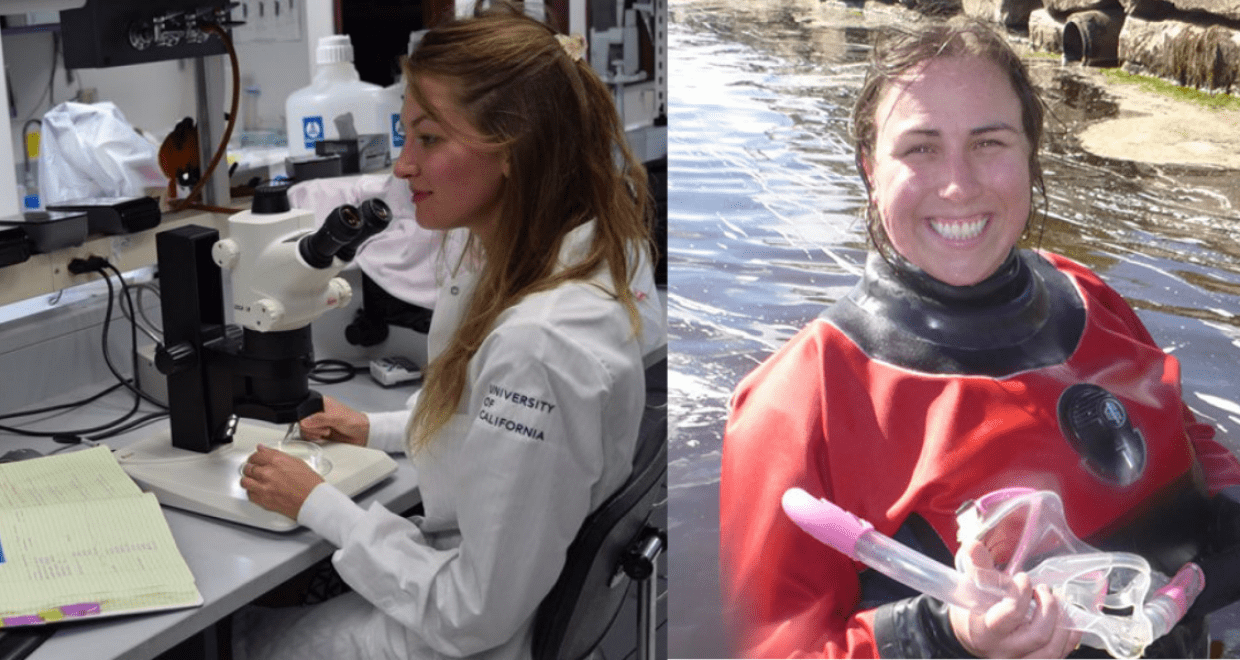Meet the Editors: Q&A with Emily Pascoe and Maureen Williams, Social Media Editors for Parasitology
Welcome to our “Meet the Editors” series, where we interview the editorial team about their work and their relationship to the journal. In this post we meet Drs Emily Pascoe and Maureen Williams, Social Media Editors for Parasitology
Dr Emily Pascoe
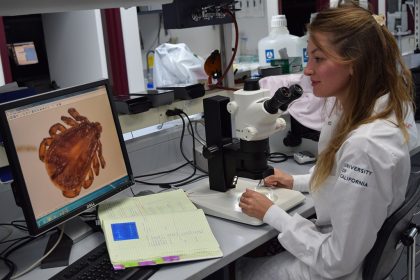
What is your current job title both within Parasitology and outside of the journal? Where are you based in the world?
I’m one of the Social Media Editors for Parasitology alongside Maureen Williams, which means we manage the Twitter and Facebook pages associated with the journal. I also liaise with authors that have been invited by the editors to write a blog post for the Cambridge Core Blog website. We aim to get everybody interested in what is happening in the journal, not just academics. Outside of the journal I am a postdoctoral researcher for the Pacific Southwest Center of Excellence in Vector-Borne Diseases, at the University of California, Davis, USA. I research the ecology of ticks and tick-borne pathogens.
In a few sentences, please describe the focus of your work. Which parasites do you study? What is the goal of your research? What approaches do you use in your work?
Ticks can transmit pathogens (like the Lyme disease bacteria) from one host to another when they take a blood meal. A lot of these pathogens have a specific cycle and require the right species of tick vector and animal host in order to be transmitted. I am really fascinated by how pathogens, vectors and hosts interact, especially over time or after an event such as a wildfire, and how this in turn affects disease risk. Bit by bit, we hope this knowledge will help us to understand and predict the risk to humans under different scenarios. I’m really lucky, because I get to do a bit of everything: fieldwork to collect ticks and other samples, lab work to test the samples for pathogens, and data analyses.
When did you first become interested in parasitology as a field? Did a particular teacher or mentor direct your career path?
I loved the parasitology course I took during my undergraduate degree in Biology at Cardiff University, learning how these often hidden organisms can have such profound impacts on their host and ecosystem was just fascinating to me.
How did you first become familiar with Parasitology?
I first began reading papers from Parasitology for journal clubs and to write my thesis during my undergraduate degree, it helped me to really start to get to know the discipline.
What motivated you to become a social media editor at Parasitology?
I love scicomm and I think it is really important to make science accessible to everyone. I also thought it would be an amazing opportunity for me to learn more about the cutting edge research published in the journal as well as how to be a better science communicator.
What is the best part of working with Parasitology?
I love that I get to read and learn about things not in my specific field of research, and getting to communicate with the authors and see their scientific paper transformed into a blog post is a lot of fun. I really like working with Maureen as she is very creative, I have learned how to be more fun and engaging online thanks to her!
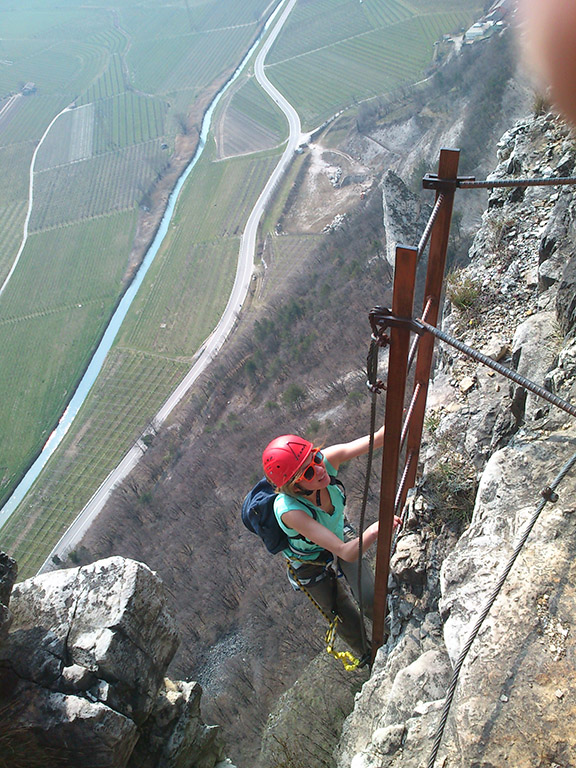
What advice would you give to those new to social media? How can they successfully interact with social media to broaden their scientific outreach?
When I first started my personal Twitter account I only used it to retweet scientific papers related to my work because I was too worried about being perceived as “unprofessional” in any way, but I’ve since learned to have more fun with it, it’s important to acknowledge that there is more to life as a scientist! I’d recommend following and interacting with as many people with your interests as possible, as it is a great way to keep up-to-date in your field and learn of any opportunities that might be of interest to you.
What advice would you give to early career researchers who are just starting out in parasitology as a field?
I think it can be very hard to know what career path you want to take, and how to get there. So trying to get varied experience to understand what you really do (and don’t!) like is really valuable, as well as talking to as many people as possible and asking them about their career path.
Dr Maureen Williams
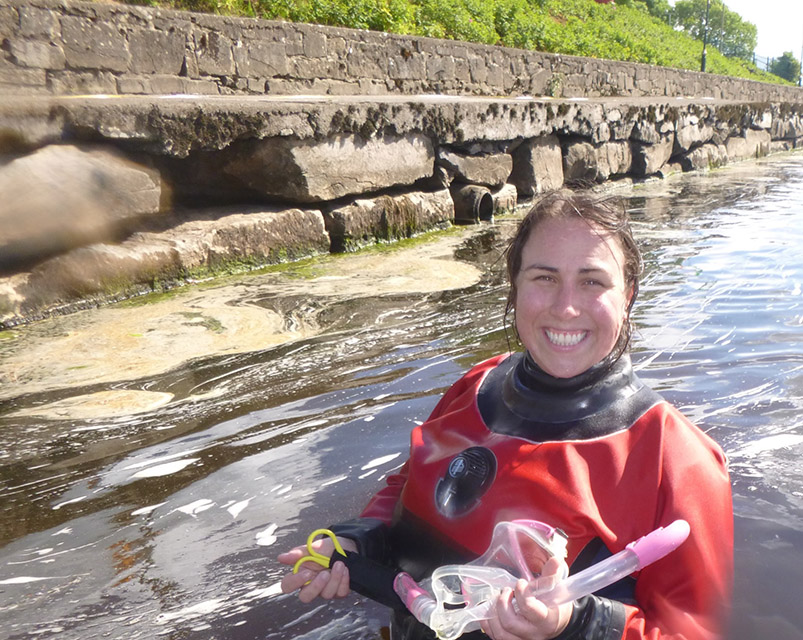
What is your current job title both within Parasitology and outside of the journal? Where are you based in the world?
At the Journal, I serve as a Social Media Editor, which means I work on the blog, help run the Twitter and Facebook accounts of the journal, and try to boost interest in the publication. With Emily, I come up with new initiatives to showcase the fantastic work done by all at Parasitology. Outside of the Journal, I work as a postdoctoral researcher at the University of Washington, in Seattle, USA. My focus is on ecological parasitology, particularly the community ecology of parasites within their hosts.
In a few sentences, please describe the focus of your work. Which parasites do you study? What is the goal of your research? What approaches do you use in your work?
I’m deeply curious about the ways in which humans impact host-parasite relationships in aquatic ecosystems. During my postdoc, I’ve been focused on elucidating the impact of fishing pressure on parasite communities within coral reef fishes. I also have an interest in energy flow and food web dynamics. To tackle these questions, I rely on a combination of observational, experimental, and computational approaches. Ultimately, I aim to determine how parasites are able to shape their ecosystems
When did you first become interested in parasitology as a field? Did a particular teacher or mentor direct your career path?
When I was an undergraduate in America, I opted to spend a year abroad at Trinity College Dublin. I was incredibly fortunate, as I was able to sign up for Prof. Celia Holland’s Parasitology class. Her enthusiasm for the subject was infectious and I ended up returning to Ireland to complete a PhD under her mentorship.
How did you first become familiar with Parasitology?
Prof. Holland served as an editor with Parasitology for many years and encouraged me to read articles from the journal.
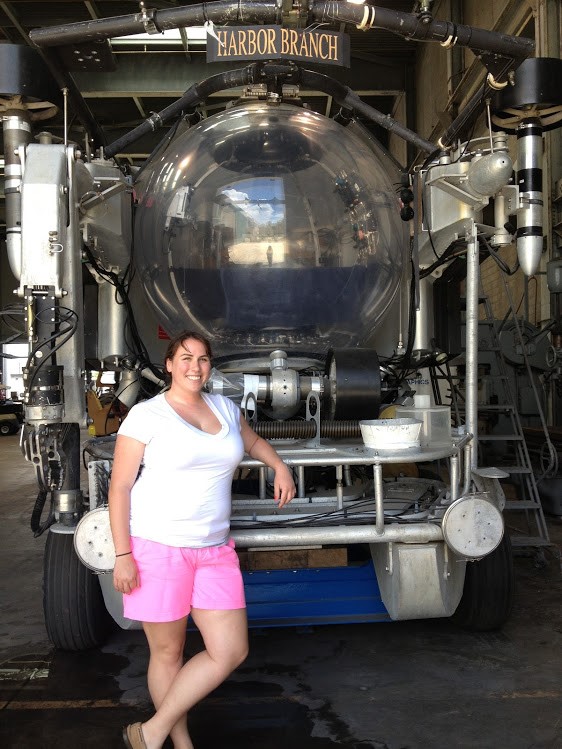
What motivated you to become a social media editor at Parasitology?
I joined Twitter quite early in its life and saw the benefits of the platform for networking, learning, support, and scientific communication. I also regularly contributed to a number of blogs, an activity I enjoyed. The role allows me to merge my interest in scientific communication with my passion for parasites.
What is the best part of working with Parasitology?
I love learning about all the cutting edge research that is published in Parasitology. I have developed an appreciation for so many of the subfields of parasitology that I was unaware of, particularly biochemical parasitology and human parasitology. I also get to work with an amazing team to help authors get recognition for their work.
What advice would you give to those new to social media? How can they successfully interact with social media to broaden their scientific outreach?
Try to have fun! Short bits of information with gifs are usually the best on most platforms. Twitter tends to be a great place to find new papers and share information about projects you’re working on. It’s also a great place to look for help- whether it’s with techniques or theory. There’s a lot of very supportive researchers on Twitter these days. Instagram can be a great way to show others what you’re working on. Overall, don’t hesitate to politely reach out to others on social media.
What advice would you give to early career researchers who are just starting out in parasitology as a field?
Try to seize any opportunity you can to explore a new field. Ask for help from those around you when you need it and follow your passion.
Parasitology is an important specialist journal covering the latest advances in the subject. It publishes original research and review papers on all aspects of parasitology and host-parasite relationships, including the latest discoveries in parasite biochemistry, molecular biology and genetics, ecology and epidemiology in the context of the biological, medical and veterinary sciences.
